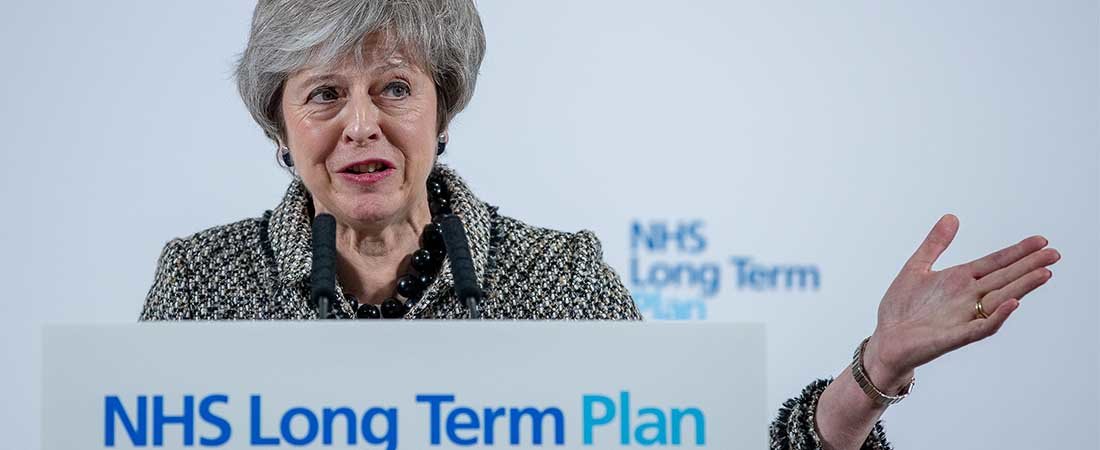On Monday, the NHS published its strategy for the next decade. Comprehensive and ambitious, the ‘NHS Long Term Plan’ provides practical solutions to the challenges an ageing population, funding pressures and growing demand will bring in coming years.
The political timing has been carefully selected. How could it not be? Funding decisions for the NHS are the biggest the Government ever makes, and the £20 billion that accompanies the Plan is as much a down payment for parliamentary and public support, as it is new hospital beds and doctors. This explains why, despite the strategy having been ready for some time, its publication was delayed until the opportune moment.
A possible no-deal exit from the EU is only 79 days away. Other alternatives on the table include a second referendum, extension of Article 50, and of course Theresa May’s own withdrawal agreement, to be voted on next Tuesday. If May is to be believed, the advantage of MPs passing her deal is that then Brexit will be wrapped up. No more debates, no more uncertainty, and no more distraction from the much-neglected domestic agenda.
The freedom to move on from Brexit is a crucial advantage May’s deal has over the other options touted by Leave and Remain, all of which would extend the Brexit uncertainty deep into 2019 and potentially beyond. A long term plan for the NHS is the perfect example of what that freedom could look like, and gives Cabinet loyalists a message for dissenting Tory MPs in coming days: “if only we could all get behind May’s deal this month, we’ll finally have the Brexit-free headroom to get back to business.”
It’s hard to remember another time in the May premiership when a domestic policy announcement has received such widespread coverage for an extended period. Much of this was not positive at the outset, particularly when Labour were able to cut-through with arguments that the funding is insufficient and waiting time targets have been left out of the plan. However, since its publication yesterday, a more balanced media assessment has shown the Government is capable of delivering for the public on key domestic issues after Brexit. Perhaps most importantly, it has also provided Government whips and Downing Street with cover from the media spotlight to get their ducks in a row before the Withdrawal Agreement is presented back to MPs in a few days.
Regardless of the Brexit outcome in coming months, remember also that the Conservative Party will enter a significant period of repairing itself in the aftermath. Theresa May has said she will not lead the Tories into the 2022 election, but this does not mean she won’t be at the helm should she choose to go to the country any sooner. If an unexpected election is called, the NHS plan is a ready-made manifesto pledge to re-launch while opposition parties scramble to ready themselves.
The Government surrounded the original £20 billion NHS funding announcement last June with populist appeal, claiming that this would be partially paid for through a ‘Brexit dividend’. In the context of a snap election, this argument could demonstrate that the Tories can make a success of Brexit to improve public services. If communicated effectively, the NHS plan could be the perfect way for the Prime Minister to seal her legacy in healthcare, while passing on a domestic win to her successor that could one day tip the balance between remaining in power versus a fresh stint in opposition.

